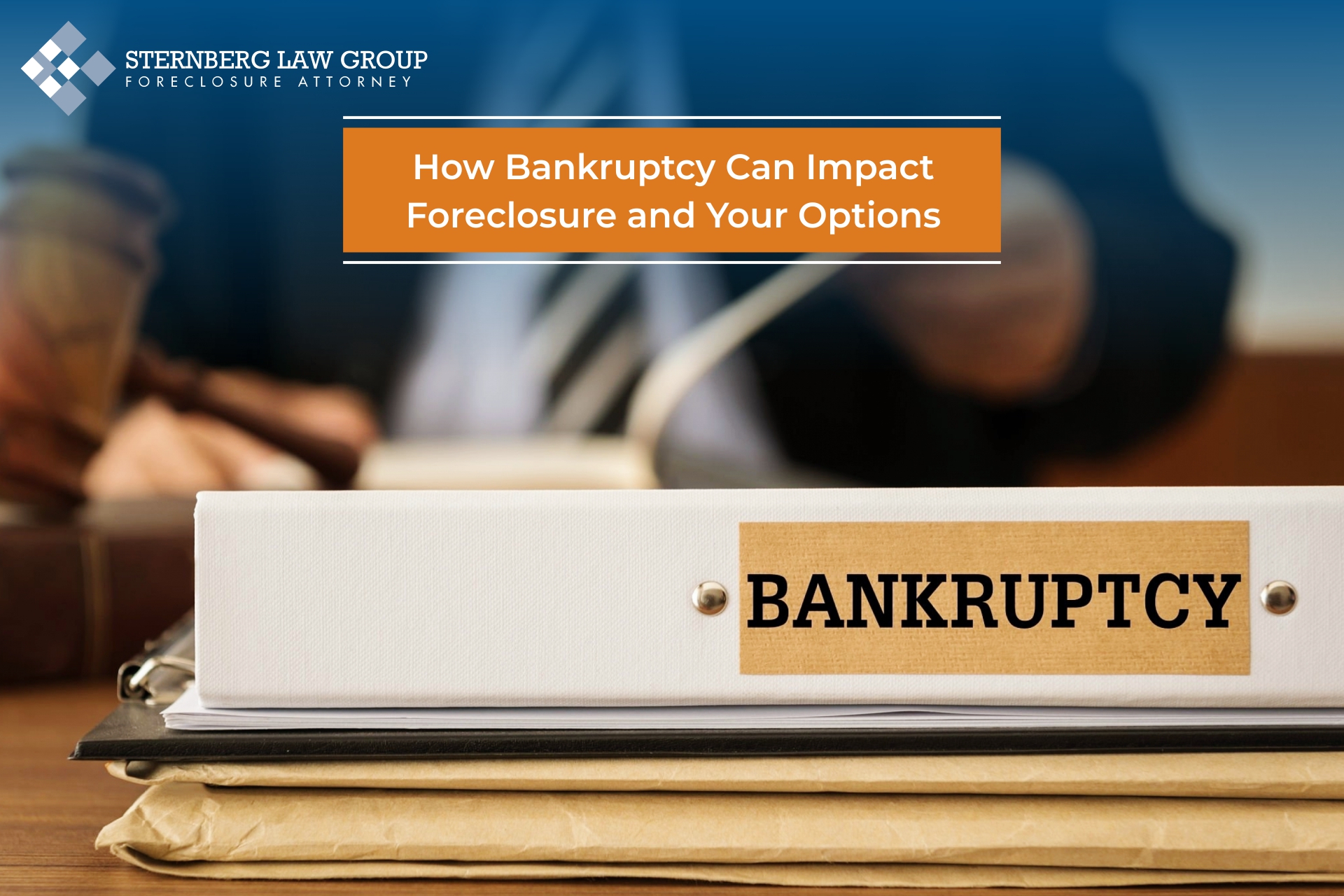
As homeowners face the daunting prospect of foreclosure, it’s crucial to understand the various options available to delay or avoid losing their homes. One option, which can provide temporary relief in dire circumstances, is filing for bankruptcy.
Bankruptcy, however, is a complex legal procedure that can have severe and long-lasting consequences on a person’s financial stability and creditworthiness. Homeowners must be well-informed about the implications of bankruptcy on foreclosure, as well as the potential benefits and drawbacks associated with pursuing this course of action.
Engaging the services of experienced foreclosure attorneys, like those at Sternberg Law Group, is essential to successfully navigate the complexities of bankruptcy and foreclosure and make well-informed decisions based on each homeowner’s unique circumstances.
In this in-depth guide, we will explore the intersection of bankruptcy and foreclosure, including how the different types of bankruptcy can impact foreclosure proceedings. Additionally, we will discuss the role experienced foreclosure attorneys play in guiding homeowners through the bankruptcy and foreclosure process, providing expert advice, support, and representation.
We will also examine the importance of considering all available options for mortgage relief and foreclosure prevention, including bankruptcy alternatives such as loan modifications, short sales, and deed in lieu of foreclosure.
Armed with a thorough understanding of how bankruptcy can impact foreclosure and backed by the support of skilled legal professionals like those at Sternberg Law Group, homeowners can effectively weigh their options and make well-informed decisions regarding their financial future.
By exploring all possible pathways of mortgage relief and foreclosure prevention, and leveraging the expertise of dedicated foreclosure attorneys, homeowners can actively work toward achieving a more secure and stable financial future.
There are two primary types of personal bankruptcy that homeowners may file, each with its own distinct implications for foreclosure proceedings:
Also known as “liquidation” bankruptcy, Chapter 7 involves the sale of a debtor’s non-exempt assets to repay creditors. Upon filing for Chapter 7 bankruptcy, an automatic stay halts foreclosure proceedings temporarily. However, this stay may be short-lived, as lenders can request relief from the stay and resume the foreclosure process if the homeowner cannot resolve their mortgage delinquency.
In some cases,Chapter 7 bankruptcycan discharge the homeowner’s personal liability for the mortgage debt, but it is essential to note that it typically does not prevent eventual foreclosure if payments are not resumed.
Unlike Chapter 7, Chapter 13 bankruptcy, often called “reorganization” bankruptcy, allows the debtor to develop and follow a three- to five-year repayment plan to repay their debts, including mortgage arrears. Filing for Chapter 13 bankruptcy can halt foreclosure proceedings and give homeowners an opportunity to catch up on their missed mortgage payments over time.
Chapter 13 bankruptcy can be a viable option for homeowners who have a steady income and can demonstrate their ability to meet the repayment plan’s requirements, while also addressing their mortgage obligations.
Filing for bankruptcy can provide certain advantages for homeowners facing foreclosure but also carries several downsides that must be carefully considered:
Before opting for bankruptcy, it is essential for homeowners to examine all available alternatives for mortgage relief and foreclosure prevention, including:
Adjusting the terms of the existing mortgage, such as reducing interest rates or extending the loan term, can make mortgage payments more manageable for homeowners and help them avoid foreclosure.
Selling the home for less than the outstanding mortgage balance can potentially mitigate the negative impacts of foreclosure, although this option generally requires lender approval.
Voluntarily transferring the property title to the lender can allow homeowners to avoid the foreclosure process, sometimes in exchange for forgiving the remaining mortgage balance or allowing the homeowner to remain in the property as a tenant.
Understanding the potential impacts of bankruptcy on foreclosure, as well as the benefits and drawbacks of pursuing this course of action, is essential for homeowners in financial distress. By exploring all available mortgage relief and foreclosure prevention options alongside experienced foreclosure attorneys, homeowners can make well-informed decisions that best serve their long-term financial interests.
Partnering with knowledgeableforeclosure attorneys like those at Sternberg Law Group ensures comprehensive guidance, steadfast support, and skillful representation throughout the intricate processes of both bankruptcy and foreclosure. Armed with expert legal counsel, homeowners can successfully navigate their financial challenges and work towards achieving more secure and stable futures.Contact us today